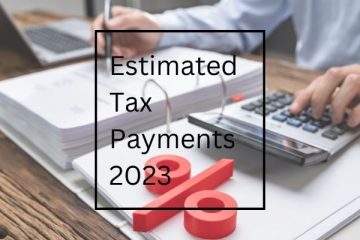A income self-employment ledger is like a little book or an online tool you use to keep track of the money coming in and going out of your business. It’s super important, especially if you’re working for yourself, because you’ve to tell the tax experts how much money you’ve made. So, it’s a way to make sure you’re following the rules and showing the right income on your tax forms.
As a self-employed person, you’ve to report your income when tax time comes around. To do that you’ve got to be organized and keep a record of all the money you get and spend. A self-employment ledger can help with that. It’s just a fancy way of saying a list of your earnings and expenses. You can write it down in a notebook or use a computer program – whatever makes it easy for you, as long as it’s neat and clean.
Keeping a proper self-employment ledger is a smart move to keep your money in check. If you work for yourself, own a small business, or do freelance work, it’s a good idea to keep a detailed record of how much you’re making. That way, when tax season arrives you’ll have the right numbers to figure out your taxes.
Table of Content
- 1 Why Should You Keep an Income Ledger?
- 2 How to Create Your Own Self-Employment Ledger?
- 3 Why Use a Self-Employment Ledger?
- 4 Can You Use a Ledger to Prove Your Income?
- 5 Common Mistakes in Self-Employment Ledgers
- 6 When Do You Really Need a Self-Employment Ledger?
- 7 How to Fill Out a Self-Employment Ledger Form?
- 8 Conclusion
- 9 Frequently Asked Questions
- 9.1 What exactly is a self-employment ledger, and why do I need it?
- 9.2 How do I create a self-employment ledger, and what should it include?
- 9.3 Why is it important to have an accurate self-employment ledger?
- 9.4 Can I use any format for my self-employment ledger, or are there specific requirements?
- 9.5 What expenses can I include in my self-employment ledger?
- 9.6 How often should I update my self-employment ledger, and what’s the benefit of doing so?
Why Should You Keep an Income Ledger?
There are several good reasons to have a self-employment income ledger. Firstly, it helps you play by the rules and stay on the right side of the law. Secondly, it’s a handy tool to manage your business finances enabling you to make smart decisions. Lastly, it makes tax season a whole lot easier. When you maintain a ledger, you’ve got all the details you need to accurately report your profits and expenses on your tax forms.
How to Create Your Own Self-Employment Ledger?
If you ever need to prove your income, you might be asked for a self-employment ledger. Making one isn’t all that complicated. It’s basically a record of all the money you’ve earned and spent through your self-employment work. There’s no strict format when you’re applying for things like health insurance but your ledger needs to show your income accurately. You could use accounting software to make a spreadsheet or you can find a template online to help you get started.
Why Use a Self-Employment Ledger?
Running your own business is empowering, but it also means taking on extra responsibilities. Especially when it comes to managing finances which is a job often handled by larger organizations’ professionals.
If you’re self-employed and your income comes from various sources, having an accurate self-employment ledger is essential. It’s not just about being user-friendly but it’s your tool for keeping check on your taxable self-employment income.
Maintaining a well-organized ledger makes tax preparation a smooth process. It also helps verify your income and expenses when you’re looking for loans or government healthcare support. Moreover, it enhances your financial forecasting enabling you to create a more precise tax plan.
Examples of Self-Employment Ledgers:
Your self-employment ledger doesn’t have to be very attractive/complicated. The most important thing is that it is accurate and keeps track of your income history. It should be easy to understand and back up the money you’ve made.
What Makes a Good Self-Employment Ledger:
Like we mentioned earlier, the key is to have a ledger that’s accurate and supports your income records. You’re not tied to one specific format. You can write it out by hand, use an Excel spreadsheet, or even some accounting software. If it’s clear and shows your earnings correctly, most places should be okay with it.
Can You Use a Ledger to Prove Your Income?
A self-employment ledger is like a mini financial report that shows not only how much money you make but also what you spend. It’s kind of like having a paystub for folks who work for themselves.
When you want to borrow money from a bank or attract investors, they usually want to see proof of how much you earn. Your self-employment ledger is a great way to give them an idea of your income, even what you expect to earn. If you’re signing up for health insurance through the health exchange, they’re cool with using your self-employment records to check your income.
So, it’s a smart idea to keep your records updated, not only for proving your income but also for managing your money and planning your spending.
Common Mistakes in Self-Employment Ledgers
Errors and not being truthful in your self-employment ledger can lead to problems later. If the tax experts can’t confirm your income, they might say no to government help with your healthcare. Banks could also reject your loan requests. Also, when you’re using your ledger for taxes it’s super important to report your earnings accurately to avoid getting on the IRS’s radar. Messing up your tax returns might mean you owe extra taxes which is not advised. You might even face penalties and interest charges.
When Do You Really Need a Self-Employment Ledger?
Keeping an up-to-date self-employment ledger can make it easier to handle your money and plan your budget. It’s not just about tracking your income; it also helps you make predictions and grow your business. If you want to borrow money from a bank or attract investors, they’ll want to see proof of your income. Your self-employment ledger gives them an idea of how much you’re earning. It’s also handy when you’re applying for health insurance through the health exchange. So, there are plenty of good reasons to keep your records updated.
How to Fill Out a Self-Employment Ledger Form?
When you’re looking for an example of a self-employment ledger on the internet, you’ll find loads of free templates. Some are more detailed than others, but they should all give you the info you need.
These ledger forms typically have columns for the date, what service or goods you provided and the name of your customer or client. Some people like to keep things simple and use templates with just the essential info. When you set up or fill out a template, think about how easy it is to keep it updated.
Feel free to change the design and format of a template to fit your style and needs better. There’s no one-size-fits-all form, so most places are okay with it as long as it’s easy to understand and has the right info.
Now, there’s no “right” way to fill out a self-employment ledger, but most people follow some common steps:
1. Record Your Total Income:
As soon as you get paid, fill down how much money you made in each month. Keep track of every payment you get for your services or products, what kind of income it is (like accounts receivable, cash, or checks), and the date you received it. Organize these amounts by month to make it easier to see.
Remember, you’re noting when you got paid, not when you did the work or delivered the product.
2. Track Business Expenses:
Filling out your self-employment ledger means writing down all the business expenses you can claim, which can help you pay less in taxes. Keeping records of your deductible expenses can make sure you get the best possible tax return.
Deductible expenses can include big purchases for your business, like equipment, tools, software, and other stuff that lasts a while. It can also cover a portion of your home expenses and the part of your home that you use for work.
Write down the date for each expense and describe what it was for. Total up your monthly spending. If you’re not sure what you can deduct, it’s a good idea to talk to a tax expert.
If your business is based at your home, there are some deductions you can take for housing expenses, like mortgage, property taxes, and home insurance. You can choose to claim a part of your actual home expenses as a “cost of doing business” for self-employment.
Your expense list shouldn’t include things like worn-out items, depreciation, taxes, retirement plans, personal home expenses, personal internet and phone bills, and groceries if you’re using them for your home-based business.
Different types of self-employment have different rules for what expenses you can claim. Some things might be deductible in one type of business but not in another.
3. Review and Add Up the Numbers
At the end of each month, it’s crucial to keep your ledger up to date. Check for any mistakes or things you might have missed. Add up your total income and expenses, and write those numbers in a separate section.
It’s understood that you might not always have time to fill out all those columns and add up the totals. That’s where online check stub makers can be a big help. They make sure you don’t lose track of important details.
Conclusion
In conclusion, a self-employment ledger serves as an important tool for tracking and verifying your self-employment income. When you’re self-employed, documenting your income can be challenging without regular pay stubs. Whether you’re applying for health insurance on the health exchange or managing your financial records, a well-maintained ledger can make the process more manageable. It’s a crucial element of responsible financial management for self-employed individuals.
If you find yourself struggling with the complexities of self-employment ledger and income verification, don’t hesitate to reach out to our experts. We understand that crunching numbers can be difficult, which is why we offer accounting and tax services to ensure accuracy and help you save money on your taxes. Let our tax experts guide you through the process and develop a good tax planning.
Frequently Asked Questions
What exactly is a self-employment ledger, and why do I need it?
A self-employment ledger is a record-keeping tool used by self-employed individuals to track their income and expenses. It’s crucial because it helps you maintain accurate financial records, which are essential for tax reporting, loan applications, and even health insurance verification.
How do I create a self-employment ledger, and what should it include?
Creating a self-employment ledger is simple. You can use templates available online or design your own. It should include details like the date of income or expenses, a description of the service or goods provided, and the name of the client or customer. Accuracy and organization are key.
Why is it important to have an accurate self-employment ledger?
An accurate ledger is vital because it helps you report your income truthfully for tax purposes. Inaccurate information can lead to issues with the IRS, possibly resulting in additional taxes, penalties, and interest charges. It’s also important for showing your income to potential lenders, investors, or for health insurance applications.
Can I use any format for my self-employment ledger, or are there specific requirements?
There isn’t a specific format mandated for self-employment ledgers. You have the flexibility to design it according to your preferences. However, it must be clear, easy to understand, and contain accurate information. Most institutions will accept your ledger as long as it meets these criteria.
What expenses can I include in my self-employment ledger?
You can include any business-related expenses that are legitimate and tax-deductible. These may encompass major purchases, like equipment and software, as well as a portion of your home expenses if you use part of your home for work. It’s important to document the date and purpose of each expense accurately.
How often should I update my self-employment ledger, and what’s the benefit of doing so?
It’s advisable to update your ledger regularly, preferably at the end of each month. This practice helps you stay on top of your financial situation, making it easier to manage your budget and forecast your income. Regular updates also reduce the risk of making errors and omissions in your records, ensuring their accuracy for various financial purposes.




